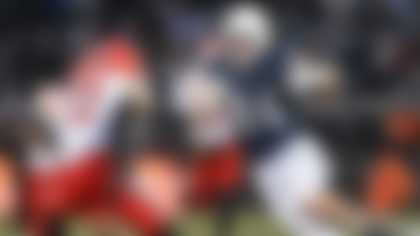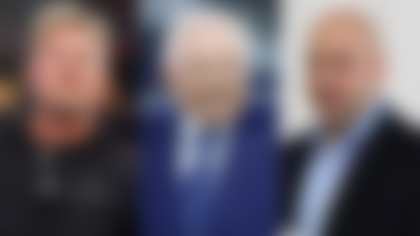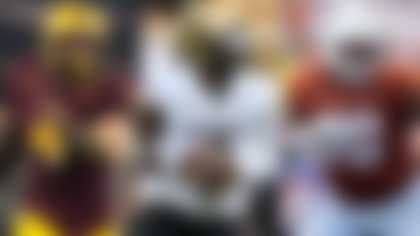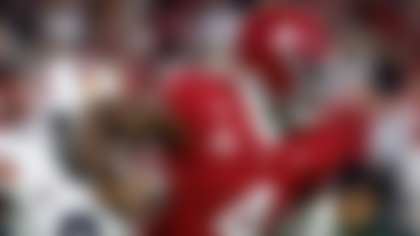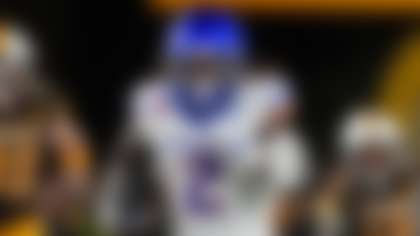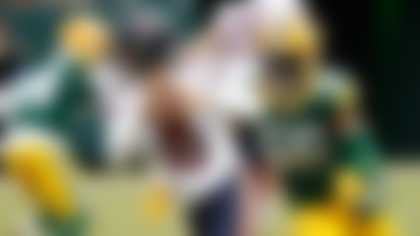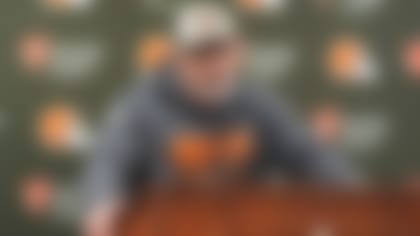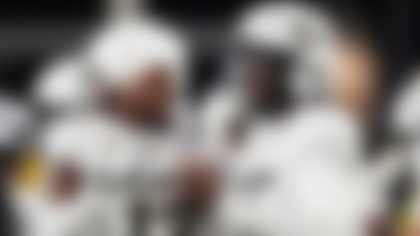The Cowboys' season is over -- far sooner than they expected and weeks before their owner envisioned. All of which means the real intrigue begins now.
Even before the locker-room door closed after their 23-17 loss to the 49ers on Sunday in AT&T Stadium, questions surfaced about just how different the roster and the staff might look next season because of the defeat. If that sounds harsh or rash, you don't know Jerry Jones.
No owner is more upfront about his desire to win another Super Bowl than Jones. He once told me (jokingly, I believe) he might consider signing over AT&T Stadium and the Cowboys' lush training facility in exchange for one more title, presumably because it would remove any doubt about his ability to construct a championship club without Jimmy Johnson, the former coach who led Dallas to back-to-back titles in the 1990s and is widely credited with assembling the players who won a championship two years after he parted ways with the team.
The Cowboys have not been back to a Super Bowl since that 1995 season. They also have failed to even reach the NFC Championship Game during that span. The pain of the 26-year drought was as clear as the deepening crevices on Jones' 79-year-old face Sunday when he met with reporters.
"Extraordinarily disappointed," he said. "Very disappointed. Disappointed for our fans. This is quite a letdown."
He added that he could not remember the last time he has been so disappointed, the depths of his emotion likely stemming from how the Cowboys lost as much as the outcome itself.
Jones thought he had built a team that could win now. He signed quarterback Dak Prescott to a mega-contract in the offseason, won the bidding war for defensive coordinator Dan Quinn and landed linebacker Micah Parsons, the presumptive Defensive Rookie of the Year, in the first round of the draft.
When the Cowboys won six in a row after losing the season-opener to the defending Super Bowl champion Bucs, his optimism and expectations only grew. He even went so far as to publicly acknowledge early this week that this "unquestionably" was a Super Bowl-or-bust season.
So to see the year end in a fog of penalties, head-scratching coaching decisions and inconsistent play from some of the team's stars raises questions about whether there could be dramatic changes on the staff and roster in the offseason, particularly considering Mike McCarthy was brought in as coach before the 2020 season to take the team to the next level, and Prescott was signed to one of the richest contracts in league history to do the same.
"The hump is advancing in the playoffs," Jones said on Sunday. "There's been some good quarterbacks that haven't advanced in the playoffs. I'm just sick we're one of them. Really sick. I'm surprised and sick."
Roller-coaster rides can do that you, which is what the Cowboys' season and recent history has been. Heightened expectations followed by disappointing finishes. Hype and hubris instead of results.
McCarthy told reporters that he doesn't have "any concerns" about his job status, and maybe he has every right to feel secure. Jones said he would not discuss coaching during his postgame press conference. But it is an understatement to say Sunday was a bad look for McCarthy and the team. An offense that ranked No. 1 in the league could manage just seven points through three quarters, and a defense that prided itself on forcing turnovers had none entering the fourth quarter. Worse, the Cowboys lived down to their reputation for being undisciplined. After leading the league in penalties and ranking No. 2 in penalty yards during the regular season, they committed 14 infractions on Sunday, tying for second-most in league playoff history.
Some penalties were ridiculous, like lining up in the neutral zone three times ... or being called for holding on a kickoff return ... or committing false starts on back-to-back plays at home. Others proved to be especially costly, such as late in the third quarter when they were whistled for an illegal block above the waist. First-and-10 became first-and-15, which became a sack, which became an interception of Prescott, which became a 26-yard touchdown run by Deebo Samuel that gave San Francisco a 23-7 lead.
There also was a devastating holding call on defensive end Randy Gregory (owner of two neutral zone infractions) with less than two minutes to play when Samuel had been stopped for no gain on second-and-9 and the Cowboys trailing by six. That gave the 49ers a first down and allowed them to drain all but 32 seconds off the clock before Dallas regained possession with no timeouts.
Despite all of that, the Cowboys still had a chance to win. Completions by Prescott advanced the ball from the Dallas 20 to the San Francisco 41 with 14 seconds remaining. But in the second major head-scratching moment of the afternoon, Prescott ran up the middle of the field to the San Francisco 24 on the next play and failed to spike the ball before time expired.
By rule, the umpire has to place the ball before a play can begin. Prescott handed the ball to his center instead of an official, who bumped into a couple of Cowboys while trying to get the ball to reset it. The sequence cost Dallas a valuable second or two.
"I've never seen it come down the way it came down, as far as the collision between the umpire and the quarterback," McCarthy said. "We were trying to get inside the 30-yard line to set up the last play. The mechanics were intact, I felt, as far as our end of it. The communication that I was given on the sideline was that they were reviewing it and were going to put time back on the clock. The next thing I know, they're running off the field. That's the only thing I got for you."
It's always easy to focus on the most recent play, but the Cowboys cost themselves earlier in the quarter when they kept their punt team on the field after executing a successful fake. The unit lined up as if it were going to run a play. Meanwhile, the play clock ticked down to 19 seconds only to have the offense come running onto the field and be called for delay of game. Imagine if they had just sent out their offense and ran a play with a few seconds left on the play clock. Perhaps they would have had time to take one final shot at the end zone to end the game. We will never know. The only certainty is that Dallas is out and San Francisco advances to play at Green Bay in the Divisional Round.
Unlike the Cowboys, who won the NFC East title with relative ease, the 49ers had to battle through the loaded NFC West. Getting into the playoffs required seven wins in their final nine games and an ability to stare down adversity. So perhaps it was no surprise that they prevailed on Sunday despite losing Pro Bowl edge rusher Nick Bosa to a concussion in the first half, and being without standout middle linebacker Fred Warner for the final eight-plus minutes because of an ankle injury.
Their modus operandi is simply to find a way to win. On Sunday, that meant putting up points on each of their first four possessions to lead 13-0 early in the second quarter and 16-7 at the half. They extended the margin to 23-7 late in the third quarter by converting the interception of Prescott, who finished 23 of 43 for 254 yards with two touchdowns (one passing, one rushing) and the INT, into the Samuel score.
Dallas had no answers for Samuel, who calls himself a wide back -- a player listed at wide receiver who also plays running back. He carried 10 times for 72 yards and a score and had three receptions for 38 yards. His physical presence and ability to gain yards after contact wears on defenses, as did the running of Elijah Mitchell, who had 96 yards and a score on 27 carries. It also allowed coach Kyle Shanahan to limit the pass attempts, which was the formula for their Super Bowl run two seasons ago, when Jimmy Garoppolo attempted just 27 total passes in the two games leading up to the Super Bowl.
Garoppolo nearly matched that total Sunday, completing 16 of 25 passes for 172 yards with no touchdowns and an interception that set the stage for the end-game dramatics. His giveaway midway through the fourth quarter led to a 5-yard touchdown run by Prescott. But fortunately for San Francisco, its defense would not break the rest of the way.
"I don't think we'd be where we are today if we had an above-average defense," said offensive tackle Trent Williams. "Our defense has to be great for us to be good, and they've been great."
Greatness is relative, but in this case, the unit was good enough to advance. The same cannot be said of the Cowboys, which seems to be creating uncertainty around the franchise in the first hours of its offseason.
Follow Jim Trotter on Twitter.

